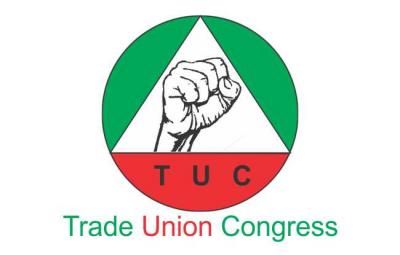The Trade Union Congress (TUC) has issued a stern ultimatum to the Federal Government of Nigeria, threatening a nationwide strike within two weeks if the proposed 5% tax on petroleum products is not rescinded. This proposed levy, intended to bolster government revenue, has been met with widespread opposition, with critics arguing it will exacerbate the already challenging economic conditions faced by Nigerians. The TUC, joined by other organizations like civil society groups, professional associations, and student unions, has vowed “total nationwide resistance” if the government proceeds with the tax. This resistance could culminate in a nationwide strike, a move the TUC believes is necessary to secure economic justice for the Nigerian people. The union leaders have characterized the tax as “economic wickedness,” highlighting the burden it would place on ordinary citizens already grappling with the removal of fuel subsidies, rising inflation, and currency devaluation.
The proposed tax, while seemingly modest at 5%, has ignited public anxiety and sparked debate about its potential impact. The tax is intended to apply to fossil fuels like petrol and diesel but excludes cleaner alternatives like cooking gas and renewable energy sources. Its implementation would mark another blow to a nation already struggling with high fuel prices. While the government maintains the finance minister has the final say on the implementation timeline, the mere suggestion of the tax has triggered widespread concern. The TUC’s strong opposition reflects the sentiment shared by many Nigerians who view the tax as an additional burden on an already strained populace.
The Organized Private Sector (OPS) has also vehemently rejected the proposed tax, expressing concerns about its potential to worsen inflation and exacerbate the cost of living crisis. Key figures within the OPS, including representatives from the Lagos Chamber of Commerce and Industry (LCCI) and the Association of Small Business Owners of Nigeria (ASBON), have voiced their disapproval. They argue that any additional tax, no matter how small, will inevitably be passed on to consumers, further squeezing households already struggling with rising costs. The OPS has warned that the tax could lead to reduced consumption, particularly in the transportation sector, and put added pressure on public transport systems.
The OPS has also raised concerns about the potential for exploitation by transporters, who may seize the opportunity to increase fares under the guise of inflation. This would further burden commuters and exacerbate the challenges faced by businesses already struggling to cope with the current economic climate. While acknowledging the government’s need to increase revenue, the OPS has urged it to explore alternative avenues that do not further burden the populace. They advocate for measures that stimulate economic growth and improve the living conditions of Nigerians rather than adding to their financial woes.
The proposed tax has its roots in the Federal Roads Maintenance Agency (FERMA) Act of 2002, which established a 5% user charge on petrol and diesel sales to fund road maintenance. This provision, though existing in law, has not been implemented until now. The current government’s attempt to revive it comes at a time of significant economic hardship for many Nigerians. The TUC’s threat of a nationwide strike underscores the deep-seated opposition to the tax and the potential for social unrest if it is implemented. The government faces a difficult balancing act between its need to generate revenue and the potential for exacerbating public discontent.
The debate surrounding the proposed tax highlights the complex economic challenges facing Nigeria. While the government seeks to increase revenue and fund essential infrastructure projects, any measures that place additional burdens on the populace are met with resistance. The TUC’s ultimatum and the OPS’s strong opposition underscore the urgent need for a more comprehensive approach to economic reform. This approach should focus not only on revenue generation but also on addressing the root causes of economic hardship, including inflation, unemployment, and the lack of social safety nets. A balanced approach that considers both the government’s fiscal needs and the well-being of its citizens is essential to avoid further economic and social instability. The coming weeks will be crucial in determining the government’s next steps and the potential repercussions for the Nigerian economy.














